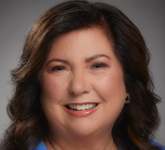
PBN 2020 Leaders & Achievers Awards
Dr. Peter Hollmann | Chief medical officer, Brown Medicine
WITH MORE THAN 35 YEARS in the field after having earned undergraduate and medical degrees at Brown University, Dr. Peter Hollmann finds himself not only having contributed to Rhode Island’s health care industry in valuable ways but in health care during a significant time in history.
As East Providence-based Brown Medicine’s chief medical officer for the past five years, Hollmann began seeing geriatric patients in the mid-1980s and continues to see those patients today. He is medical director of Lifespan Corp.’s accountable care organization and former academic director of the executive master’s in health care leadership program at Brown Medicine.
Hollmann is proud of his involvement with the Rhode Island Medical Society and its work. He’s the organization’s immediate past president and received from the organization the Dr. Charles L. Hill Award in 2015. Hollmann has also been active with the National Committee for Quality Assurance and American Geriatrics Society.
With Care Transformation Collaborative of Rhode Island – an initiative to transform primary care medicine within the state – Hollmann co-chairs the data and evaluation committee of the multipayer Patient-Centered Medical Home demonstration project, a centralized model of home care.
“The idea is to make yourself the primary point of care at home to the patient, with a goal of a formalized process that improves access and coordination,” he said. This coordinated care includes behavioral health and access to social services, such as transportation and housing.
“We look to measure and improve quality and look at health care as a team approach. Before this, we were getting more burdens without additional assistance,” as health care workers, Hollmann said, with an absence of a big-picture perspective of each patient.
While instituting change in his many roles, including during his stint as Blue Cross & Blue Shield of Rhode Island’s medical director from 1987 to 2003, Hollmann sees change resulting from the COVID-19 pandemic.
Telehealth has become more common. Respect for health care professionals has increased, he said.
“Hopefully, we are all now more aware of the difficult and important role of personal-care workers in nursing facilities and in the home,” Hollmann said.












